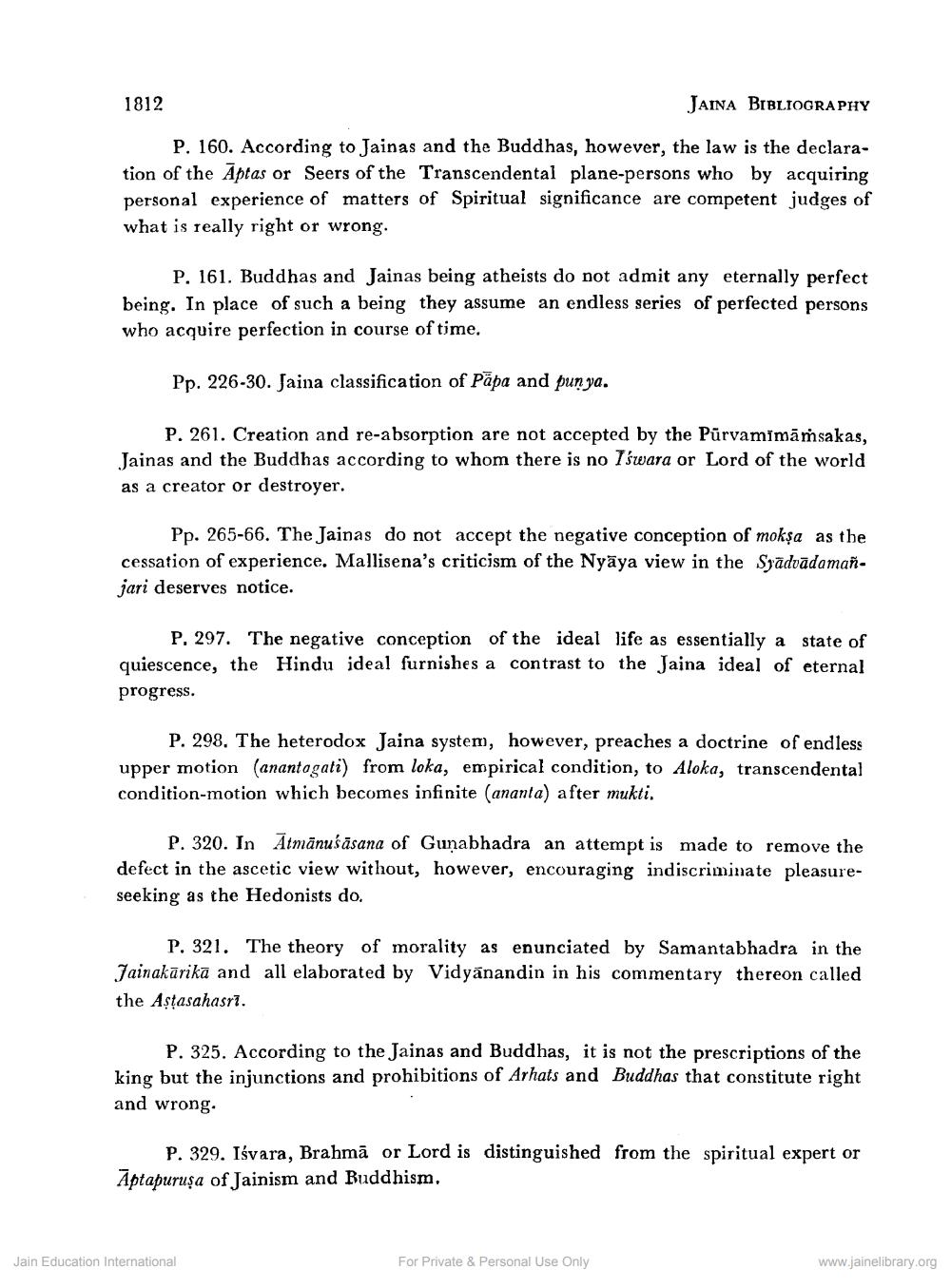________________
1812
JAINA BIBLIOGRAPHY
P. 160. According to Jainas and the Buddhas, however, the law is the declaration of the Aptas or Seers of the Transcendental plane-persons who by acquiring personal experience of matters of Spiritual significance are competent judges of what is really right or wrong.
P. 161. Buddhas and Jainas being atheists do not admit any eternally perfect being. In place of such a being they assume an endless series of perfected persons who acquire perfection in course of time.
Pp. 226-30. Jaina classification of Papa and punya.
P. 261. Creation and re-absorption are not accepted by the Pūrvamimāṁsakas, Jainas and the Buddhas according to whom there is no Iswara or Lord of the world as a creator or destroyer.
Pp. 265-66. The Jainas do not accept the negative conception of mokșa as the cessation of experience. Mallisena's criticism of the Nyāya view in the Sjadvādamañ. jari deserves notice.
P. 297. The negative conception of the ideal life as essentially a state of quiescence, the Hindu ideal furnishes a contrast to the Jaina ideal of eternal progress.
P. 298. The heterodox Jaina system, however, preaches a doctrine of endless upper motion (anantagati) from loka, empirical condition, to Aloka, transcendental condition-motion which becomes infinite (ananta) after mukti.
P. 320. In Atmānusāsana of Gunabhadra an attempt is made to remove the defect in the ascetic view without, however, encouraging indiscriminate pleasureseeking as the Hedonists do.
P. 321. The theory of morality as enunciated by Samantabhadra in the Jainakārika and all elaborated by Vidyānandin in his commentary thereon called the Astasahasri.
P. 325. According to the Jainas and Buddhas, it is not the prescriptions of the king but the injunctions and prohibitions of Arhats and Buddhas that constitute right and wrong.
P. 329. Iśvara, Brahmā or Lord is distinguished from the spiritual expert or Aptapuruṣa of Jainism and Buddhism,
Jain Education International
For Private & Personal Use Only
www.jainelibrary.org




